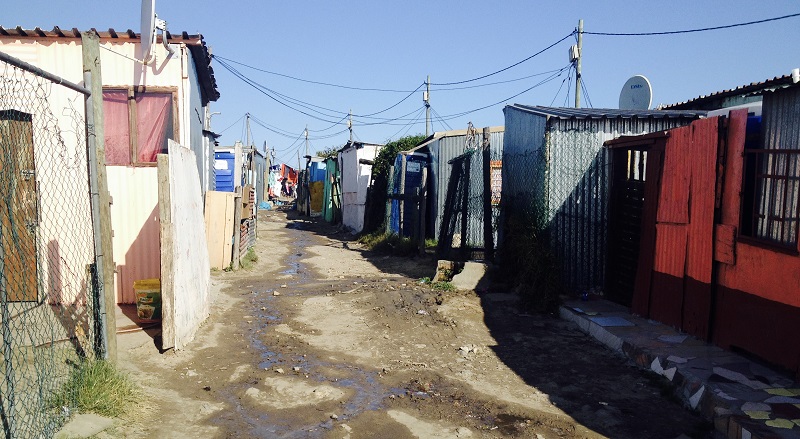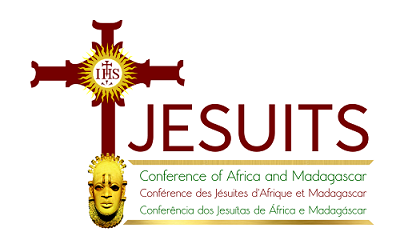Covid-19 reveals challenges of the pre-existing pandemic of poverty

By Fr. Rampe Hlobo SJ | Jesuits South Africa
As the world ushered in the new decade in January, few among us could tell that there was a pandemic on the horizon. By February, other parts of the world had been hit hard by the new virus which turned to be one of the most dangerous viruses in living memory.
Covid-19 which continues to ravage life has exposed many others that have been devastating certain sections of our societies for a very long time, not least, poverty.
It has brought to light the fact that humanity, in general, has been turning a blind eye to the sufferings of the poor and marginalised who during this pandemic of Covid19 have proven to be the weakest link in the line of defence against this merciless virus. As the old saying goes, “we are as strong as our weakest link.” The war against the rising number of infections can never be won unless we adhere to the recommendations of WHO and health authorities. Staying at home, social distancing, regular washing of hands with soap, regular sanitising of hands, healthy diet, etc. All of these are beyond reach for the poor, especially the poorest of the poor and yet we are told are the basic defence mechanisms to avoid being infected.
As lockdowns began in many countries, particularly in South Africa where on March 27 the country went into a severe lockdown which felt like a shutdown, the consequences of the economic injustices that drove many poor people to lives of abject poverty were laid bare. Many of the people living in unhealthy informal human settlements could not adhere to the safety recommendations for avoiding Covid-19 infection as they were living in abject poverty that denied them the possibility of practising what was recommended for their own wellbeing and that of others. Of course, many who have the means to stay at home and practise social distancing etc. were quick to criticise those marginalised of our society who could not observe the recommendations. Once again, however, poverty is showing us that the unjust distribution of resources can be, and is detrimental to the whole society.
The challenges of this situation, particularly poverty, are also a reminder to all that we cannot allow the poor, especially the poorest of the poor and their plight to fall off the social justice radar and conversation. Commenting on caring for the poor, the late biblical scholar, Cardinal Carlo Maria Martini argued that experience shows that it is the moderately poor that generally get people’s attention. The poorest of the poor, the neediest, the most neglected, those who have reached the limit of their resistance, as he put it, are the ones that need society’s urgent attention and intervention. It is on behalf of this group of the marginalised members of our human family and society, argued Martini, that we should prioritise our intervention. The poorest of the poor, “are unable to make themselves heard, to attract attention,” and for this reason, intervention on their behalf should be not only audible but effective as well. Hence responding to and addressing the needs of the poor should at all times ascertain that their voice and concerns form part of the broader agenda and are heard as argued by Martini.
In the midst of the struggle against the pandemic of COVID-19, we are all facing the same storm, as one sage put it, but in different boats. Poverty in the middle of this storm, reminds us that a society that neglects common wellbeing and the common good, does that at its own peril. The injustices of poverty are not unavoidable and in many instances, are a result of human mendacity and greed that must be ferociously challenged and reversed. Pope Francis has alluded to this fact in his Apostolic Exhortation, Evangeili Gaudium. He argued that growth injustice should not just be economic growth but more importantly, should be coupled with “decisions, programmes, mechanisms and processes specifically geared to a better distribution of income, the creation of sources of employment and an integral promotion of the poor which goes beyond a simple welfare mentality.”
Covid-19 like many other viruses including HIV that ravaged many poor communities- lest we forget- persistently remind us that as a society and a community, we continue to ignore the scourge poverty and the poor at our own peril and impairment. More importantly, however, unjust socio-economic structures that increase the gap between the poor and the rich should be eliminated and replaced by endeavours that support initiatives like Sustainable Development Goals (SDG #1) that seek to eradicate poverty in all its forms everywhere. This of course will need political will and the embracing of the principle of the common good.
